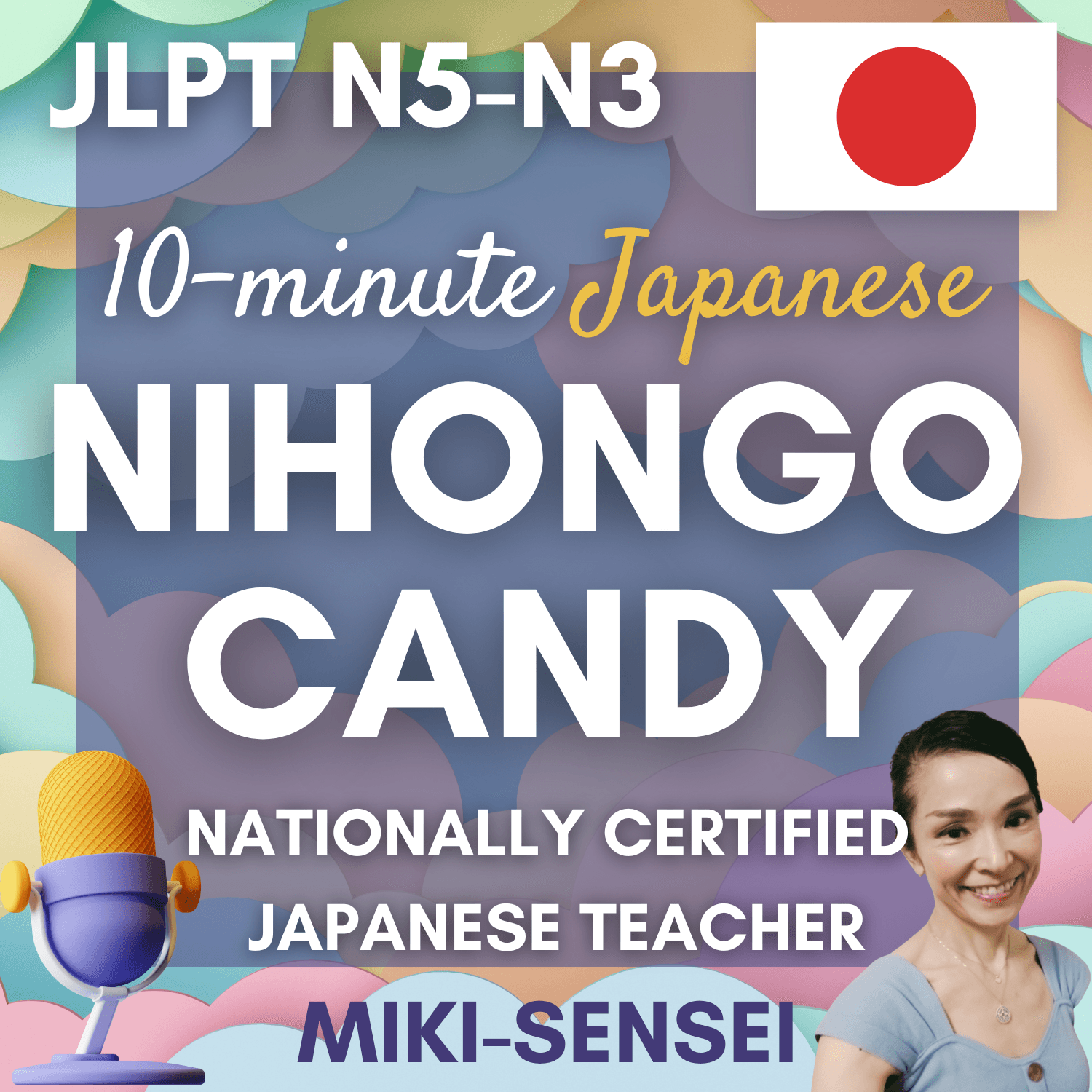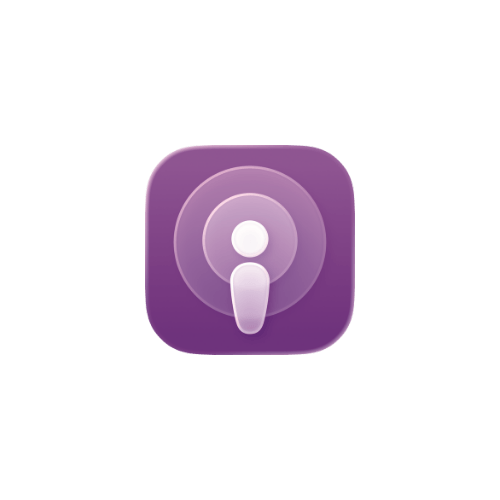
【 Podcast NIHONGO CANDY #113 】あと\"Ato\" as a conjunction \/ and then, also, besides

Introduction
Today we're exploring a casual conjunction that you'll hear frequently in everyday Japanese conversation: 「あと」. This conjunction means "and then," "also," or "besides" and is essential for natural, casual communication. The conjunction あと is similar to それに and それから but has a more conversational, informal tone. By the end of this episode, you'll understand how to use conjunction あと naturally in casual settings and learn when it's appropriate to use instead of more formal alternatives.
Section 1: Review of Basic Grammar: "Ato de" and "Ato ni"
Before we explore the conjunction あと, let's quickly review the basic grammar patterns you may already know.
「後で」(ato de) and 「後に」(ato ni) are time expressions meaning "after" or "later." For example, 「仕事の後で会いましょう」(shigoto no ato de aimashou) means "Let's meet after work," and 「昼食の後に薬を飲んでください」(chuushoku no ato ni kusuri wo nonde kudasai) means "Please take medicine after lunch."
These time expressions follow a clear pattern: [noun/verb] + の + 後で/後に. They describe when something happens after another event.
However, today's focus is completely different. The conjunction あと doesn't describe time relationships. Instead, it connects ideas, adds information, or lists multiple points in casual conversation.
Section 2: Basic Meaning of Conjunction "Ato"
The conjunction あと appears at the beginning of sentences to connect ideas, similar to それに (moreover) and それから (and then/also). However, あと has a distinctly casual, conversational tone that makes it perfect for informal situations.
You'll encounter conjunction あと most often in two main situations. First, when adding information or additional points to what you've already said. Second, when listing multiple items, reasons, or examples in a casual way.
The conjunction あと is much more casual than formal alternatives like さらに (furthermore), また (also), or 加えて (in addition). This makes it inappropriate for business presentations, formal writing, or polite conversations with superiors.
Section 3: How to Use Conjunction "Ato"
Let's explore how to use conjunction あと with clear examples.
The first use is adding information or additional points. For example, 「腰が痛いです。あと、ひざも少し痛いです」(koshi ga itai desu. ato, hiza mo sukoshi itai desu) means "My lower back hurts. Also, my knees hurt a little too." Here, あと introduces an additional problem beyond the lower back pain.
You might also hear 「そのレストランのコース料理は、とてもおいしかったです。あと、見た目もとてもきれいでした」(sono resutoran no kōsu ryōri wa, totemo oishikatta desu. ato, mitame mo totemo kirei deshita) meaning "The restaurant's course meal was very delicious. Also, the presentation was very beautiful." The speaker is adding another positive point about the meal.
The second use is listing multiple items or reasons. For example, 「明日、プレゼンをします。今日は資料を準備して、あと、練習もしなければなりません」(ashita, purezen wo shimasu. kyou wa shiryou wo junbi shite, ato, renshuu mo shinakereba narimasen) means "I'm giving a presentation tomorrow. Today I need to prepare materials, and also practice."
Section 4: Differences from Formal Expressions
Understanding when to use conjunction あと instead of formal alternatives is crucial for appropriate communication.
In business settings or formal situations, use そして or また instead of あと. For example, in a business meeting, say 「この案のいい点は効率性です。そして、コストも削減できます」(kono an no ii ten wa kouritsutei desu. soshite, kosuto mo sakugen dekimasu) meaning "The advantage of this plan is efficiency. And we can also reduce costs."
You could also say 「売上が伸びました。また、顧客満足度も上がっています」(uriage ga nobimashita. mata, kokyaku manzokudo mo agatte imasu) meaning "Sales have improved. Also, customer satisfaction is increasing."
Section 5: Natural Usage in Conversation
Let's practice using conjunction あと in natural conversation contexts.
When talking with friends about weekend plans, you might say 「土曜日は、ショッピングをします。あと、新しいレストランにも行きます」(doyoubi wa, shoppingu wo shimasu. ato, atarashii resutoran ni mo ikimasu) meaning "I'm going shopping on Saturday. And I also go to a new restaurant."
When discussing what you need to buy at the store, you could say 「牛乳を買わないと。あ、あと、ヨーグルトも」(gyuunyuu wo kawanaito. a, ato, yōguruto mo) meaning "I have to buy milk. Oh, and also yogurt."
When sharing your thoughts about a movie or book, you might say 「このアニメはキャラクターが魅力的でした。あと、音楽もよかったです」(kono anime wa kyarakutā ga miryokuteki deshita. ato, ongaku mo yokatta desu) meaning "This anime had appealing characters. Also, the music was good."
Section 6: Practice Exercises
"I have a fever. Also, I have a cough."
「熱があります。あと、咳も出ます。」 (Netsu ga arimasu. Ato, seki mo demasu.)
"We're having a home party tomorrow, so I need to clean and also buy flowers."
「明日はホームパーティーなので、掃除をして、あと、花も買わないと。」 (Ashita wa hōmu pātī na no de, souji wo shite, ato, hana mo kawanaito.)
"Okinawa has very beautiful ocean. Also, there's lots of delicious food."
「沖縄は、海がとてもきれいです。あと、おいしい食べ物もたくさんあります。」 (Okinawa wa, umi ga totemo kirei desu. Ato, oishii tabemono mo takusan arimasu.)
Closing
今日のレッスンはここまでです。今日は最後に、日本語の個人レッスンをうけるとき、おすすめの方法について、お話しします。1週間に1時間とか2時間のレッスンを受けるだけで、それ以外に何もしなかったら、あなたはレッスンをあまり上手に使えていません。レッスンで勉強したことを復習する、宿題をすることがとても大切です。あと、先生がたくさん話すレッスンは、おすすめしません。私は、いつも自分が20%、生徒さんが80%ぐらい話すレッスンをしたいと思っています。ごいや表現を勉強するだけなら、自分ひとりでもできます。先生とのレッスンを、アウトプットの機会として、上手に使って下さいね。
Kyoo no ressun wa koko made desu. Kyoo wa saigo ni, nihongo no kojin ressun o ukeru toki, osusume no hoohoo ni tsuite, ohanashi shimasu. Isshuukan ni ichijikan toka nijikan no ressun o ukeru dake de, sore igai ni nani mo shinakattara, anata wa ressun o amari joozu ni tsukaete imasen. Ressun de benkyoo shita koto o fukushuu suru, shukudai o suru koto ga totemo taisetsu desu. Ato, sensei ga takusan hanasu ressun wa, osusume shimasen. Watashi wa, itsumo jibun ga nijuu paasento, seitoo-san ga hachijuu paasento gurai hanasu ressun o shitai to omotte imasu. Goi ya hyoogen o benkyoo suru dake nara, jibun hitori demo dekimasu. Sensei to no ressun o, autoputt no kikai to shite, joozu ni tsukatte kudasai ne.

Our Weekly Podcast
Practicality first! A weekly podcast that helps you master useful expressions and vocabulary you can start using in everyday conversations right away. Follow and listen, and you’ll find the dots connecting—your conversation skills will naturally improve.
BLOG CATEGORY
WELC Language Services - Copyright 2025 | TERMS of SERVICE | PRIVACY POLICY



